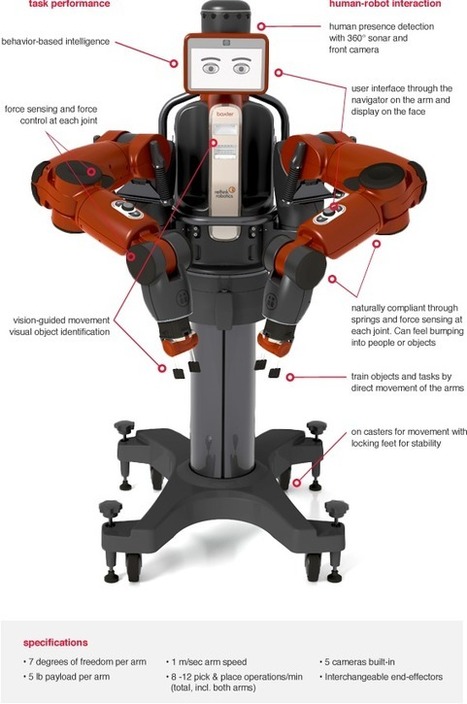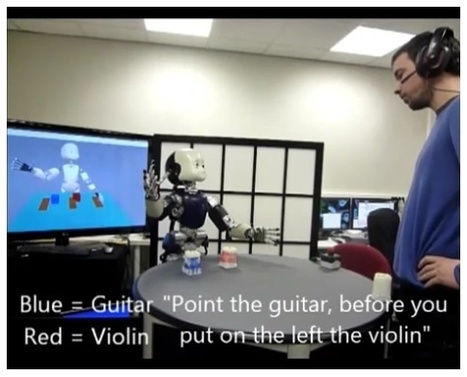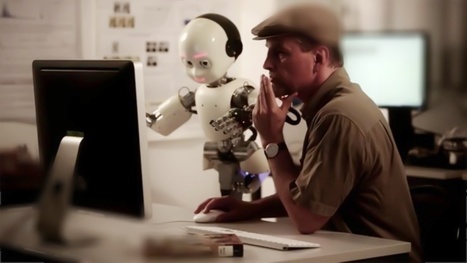Hubert Guillaud : "N'importe qui peut former Baxter. Il n'est pas aussi rapide, puissant et précis que d'autres robots industriels, mais il est plus intelligent. Pour apprendre quelque chose au robot, il vous suffit de saisir ses bras et de les guider pour qu'il fasse les mouvements corrects de la séquence qu'il doit faire. "C'est une forme d'apprentissage simple consistant à montrer ce qu'il faut faire. Baxter apprend une procédure, puis la répète. Tout travailleur est capable de faire cet apprentissage au robot. Vous n'avez même plus besoin de savoir lire ou écrire…

 Your new post is loading...
Your new post is loading...
 Your new post is loading...
Your new post is loading...












